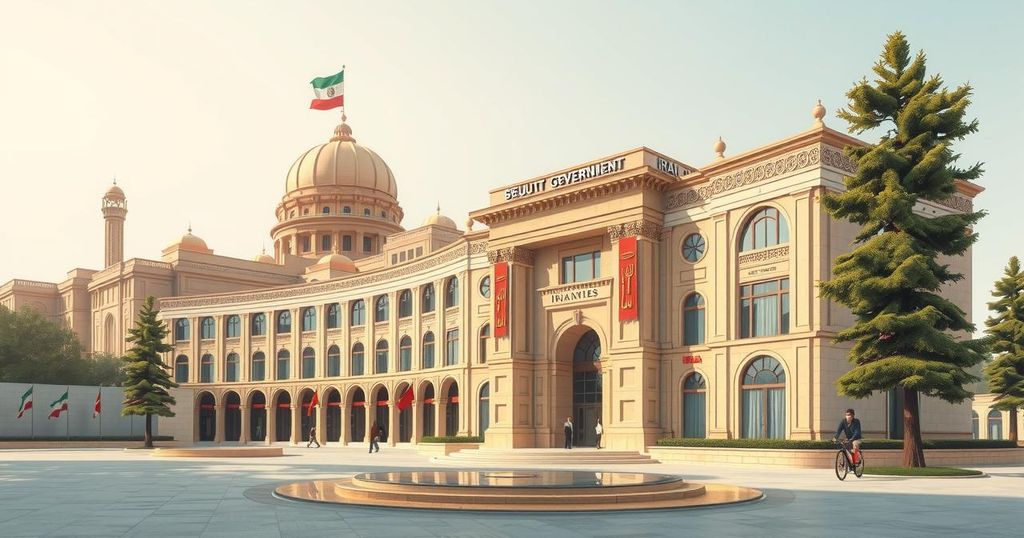World news
EUROPE, EUROPE/ASIA, FATEMEH MOHAJERANI, INTERNATIONAL RELATIONS, IRAN'S PRESIDENTIAL ELECTION, MIDDLE EAST, MOHAJERANI, MOSCOW TIMES, PROSECUTOR GENERAL ' S OFFICE, PUTIN, RIA, RUSSIA, SANCTIONS, SOVIET UNION, THE MOSCOW TIMES, UKRAINE, VLADIMIR PUTIN, WAR, WESTERN SANCTIONS
Fatima Alavi
0 Comments
Iran Prepping for Vladimir Putin’s Visit Amid Complex Relations with Russia
Iran prepares for President Putin’s visit, indicating ongoing diplomatic relations. Ties are historically complex, with skepticism towards Russia’s reliability noted by Iranian officials. Meanwhile, The Moscow Times faces significant challenges due to pressures from the Russian government, advocating for independent journalism amidst repression.
Iran is gearing up for an anticipated visit by President Vladimir Putin, according to a statement from Fatemeh Mohajerani, the government’s spokesperson. She informed the public via the RIA news agency that, “Putin’s trip to Tehran is currently being worked out, preparations are underway.” This announcement came amid a lack of comments from the Kremlin about the visit.
Putin’s last visit to Iran was in 2022, where he had discussions with Supreme Leader Ayatollah Ali Khamenei. This trip marked his first journey outside the former Soviet Union since initiating the large-scale invasion of Ukraine earlier that year. That historical context lies heavy on the current ties between the two nations.
The relationship between Moscow and Tehran, although long-standing—dating back to the 16th century when diplomatic relations were established—has often been fraught. The current geopolitical climate has further complicated these ties, especially as Moscow has been procuring weapons from Iran for its ongoing efforts in Ukraine. Earlier this year, the nations entered into a 20-year strategic partnership, a significant step for both.
Despite this seemingly close alliance, Iranian officials express a degree of skepticism towards Moscow’s reliability. They maintain that Russia, while outspoken, appears hesitant to become deeply enmeshed in the conflicts of the Middle East—even after its military engagement in Syria which began in 2015. Such hesitation suggests that there may be cautious boundaries in the partnership.
Notably, the strategic deal made between Iran and Russia does not contain a mutual defense clause, which differentiates it from various agreements that Russia has established with other countries. This absence hints at the complexities of the relationship, leaving room for doubt on mutual support during times of conflict.
In a related context, The Moscow Times highlighted pressing challenges it faces as an independent media outlet. Recently, Russia’s Prosecutor General’s Office has branded it as an “undesirable” organization, equating the practice of journalism with criminal activity, pushing its staff into potential legal peril. This aligns with their earlier categorization as a “foreign agent.”
The publication views these measures as attempts to stifle independent journalism in Russia, stating that they strive to provide truthful reporting despite these pressures. They are appealing to their readers for support to continue operations amid increasing repression, asking for contributions wherever possible, affirming that even small donations could substantially bolster their efforts to maintain a free press.
As preparations for Putin’s visit unfold and the geopolitical dynamics evolve, the implications of this partnership will certainly bear watching. The difficulties faced by independent media also underscore the challenging landscape for journalism in Russia.
Iran is actively preparing for President Vladimir Putin’s upcoming visit, as confirmed by government spokesperson Fatemeh Mohajerani. While the ties between Iran and Russia have deep historical roots, current relations are complex, marked by arms deals and mutual interests, yet shadowed by caution. Meanwhile, The Moscow Times continues to advocate for independent journalism in the face of governmental repression, requesting support to ensure its survival. Thus, the future of both diplomatic and media landscapes in this region remains uncertain and requires close observation.
Original Source: www.themoscowtimes.com




Post Comment